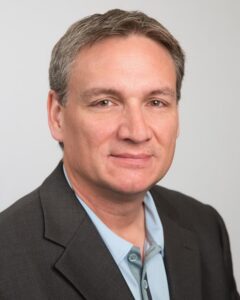New chair for Aboriginal Education at Lakehead University looks to raise profile of departmental Indigenous initiatives

Group photo- Red Rock Indian Band’s Paul Cormier, posing with family members, was appointed as chair of Lakehead University’s Department of Aboriginal Education on July 1. – Photo supplied
By Rick Garrick
THUNDER BAY — Red Rock Indian Band’s Paul Cormier is looking to raise the profile of Lakehead University’s Department of Aboriginal Education after being appointed as chair for Aboriginal Education on July 1.
“I’ve been an assistant professor in Aboriginal Education [at Lakehead University] for five years and I was tenured this summer on July 1,” says Cormier, who was selected as chair for Aboriginal Education through a peer-review process. “I’m just trying to get my feet wet but trying to raise the profile of the department a little bit and to let the public know that I think we’re moving in a really good direction by hiring and promoting Indigenous staff within the Faculty of Education.”
Cormier has a Ph.D. in Peace and Conflict Studies from the University of Manitoba, a Masters of Conflict Analysis and Management from Royal Roads University and a Bachelor of Education from McGill University.
“Over the next year, we are going to be doing a consultation process with the Indigenous community to reconfigure the degree program within the Faculty of Education for the Honour’s [Bachelor of] Education [Indigenous Teacher Education],” Cormier says. “We are going to be trying to bring the program more in line with some of the more recent approaches to Indigenous education, which would mean courses that are more land-based.”
Cormier adds that the Faculty of Education is looking to incorporate more Indigenous traditional approaches to education into the program.
“So that is going to happen over the next year,” Cormier says. “We are hoping to redesign it in a way so that it’s a lot more effective in decolonizing the education system itself so that when students leave the Faculty of Education at Lakehead then they are able to teach in more Indigenous approaches of working with communities to accomplish that goal.”
Cormier says he has received a positive response from people within the Faculty of Education and from his community about his new role.
“The Faculty of Education at Lakehead is an incredible place to work — I really have nothing but good things to say about the staff there and the people I work with,” Cormier says. “I feel like the university is in a place right now where they are really open to including Indigenous ways of learning and being and living so I think the timing is really good to try to create some real change within our faculty and also within the university at large.”
Cormier says the Department of Aboriginal Education also includes the Indigenous Language Instructors Program, which is held during the summer.
“My aunt and my godmother [Wanda White] used to coordinate the Native Language Instructors Program for years,” Cormier says. “And my mother is actually a graduate of the Native Language Instructors Program. She went back to school after she finished her career as a custodian and became a language teacher.”
Cormier says his mother’s role as a Native language teacher had a major impact on her community.
“She taught [Anishinaabemowin] to a lot of the children before she retired,” Cormier says. “And she actually still does language programs once a week at the band office, so there is a legacy there that I think is going to revitalize our languages. So when we show value to it, I think it has a larger impact on our communities at large when people see the value in learning traditional language.”
Cormier adds that his mother taught him some words in Anishinaabemowin but he is working on increasing his knowledge as he continues his role at Lakehead University.


